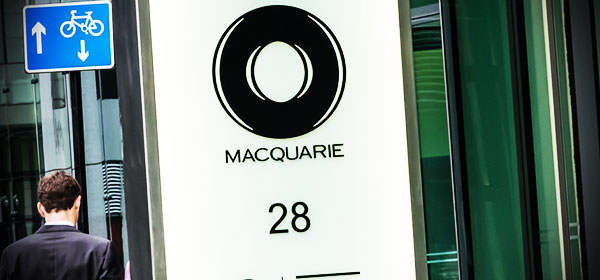This week, investment powerhouse Macquarie Bank told its cash management account (CMA) customers they would be paid less for their savings, without explanation.
The bank, whose last full-year net profit was $2.2 billion, said it would cease paying interest on the first $5000 in a CMA and reduce interest paid from 1.4 per cent to 1.3 per cent on amounts above that from 1 January, 2018.
Asked by YourLifeChoices to explain the changes, Macquarie refused to justify its decision, providing instead a description of what a CMA is.
“The CMA allows integration with accounting and financial planning firms so clients can provide authority for third parties to access their account and also provide a consolidated view of a client’s financial position,” the bank explained.
In laymen’s terms, a CMA can be used for short-term investing as well as every day spending.
A second attempt at eliciting an explanation for the slashed interest rate was no more successful. The bank responded: “We don’t have anything further to add beyond our statement, which provides context on the change.”
The earlier statement from a Macquarie spokesperson went like this: “Following a careful review, we’ve made some changes to our cash management account rates. As occurs elsewhere in the industry, interest won’t be applied for CMA balances under $5000. The CMA is an investment cash hub and continues to remain a compelling offering for advisers and clients, bringing together leading cash management functionality and an award winning digital experience.”
The highly profitable bank not only refused to justify lowering its rate, according to several comparison sites, its “cash hub” is less rewarding than some of its competitors.
Infochoice.com.au’s list of top 10 CMAs have a range of interest rates. The highest is 1.95 per cent from Big Sky and the lowest is 0.25 per cent from Bank of Melbourne. The average rate is 1.28 per cent, meaning that Macquarie’s new rate of 1.3 per cent will be rather average.
A few cash management accounts have monthly fees and other charges for ATM withdrawals, cheque dishonour fees, eftpos transactions and more.
Many come with a daily withdrawal limit of between $1000 and $2000. Others facilitate Bpay, direct credit and direct debit payments.
Macquarie does not offer those payment options, nor the ability to transact over the counter or at an ATM.
Opinion: Macquarie Bank’s Merchant of Venice moment
Macquarie Bank’s inexplicable decision to take the carving knife to interest rates on cash management accounts is out of kilter with the market.
Its reluctance to justify the move to drop its interest rate to 1.3 per cent shows extreme arrogance.
The ‘Millionaire’s Factory’ – as it is known for making its executives uber wealthy – makes money hand over fist.
Its latest net profit of $2.2 billion was attributable partly to its ability to avoid a higher tax rate. The figure is also triple what it made just five years ago, from which time it has steadily enriched itself just as the savings of its CMA customers have withered.
The bank can hardly blame the “higher cost of borrowing” to explain its modus operandi. For heaven’s sakes, the Reserve Bank of Australia’s (RBA) cash rate has remained steady on 1.5 per cent for 15 months, with the last move having been a discount of 25 basis points.
While most pundits believe the next move will be upwards, the consensus is that it won’t happen until well into next year. And if paying 1.5 per cent to borrow is too expensive for Macquarie, well it has the pick of dozens of other territories where interest rates are virtually nil.
The reason why your savings are being shredded in a Macquarie Bank CMA is because your banker has been paying you less than the inflation rate. This month, the RBA said it expected underlying inflation, which is below 2 per cent, to remain low “for some time”.
An account paying interest that is less than the inflation rate eats away at an investment because the spending power of that money is diluted as prices rise, even if by the modest amount reflected by inflation.
For all the flexibility the Macquarie product offers in terms of switching money between investments, the bottom-line is that its action is barely better than highway robbery.
To see if you can get a better deal on a CMA product, visit a comparison site.
In the meantime, let’s all keep our fingers crossed that the Federal Government is indeed contemplating launching a royal commission into the banking sector. If it does and the Shylocks among the Merchants of Venice are held to account, you may well see some even more rewarding investment products coming your way.
Hope springs eternal.
Related articles:
Banking and investment
What your banker won’ tell you
Will CBA scandal break the bank

